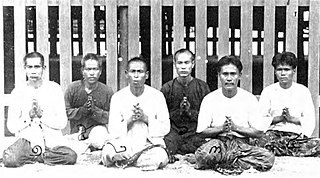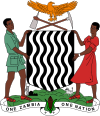Related Research Articles

The illegal drug trade, drug trafficking, or narcotrafficking is a global black market dedicated to the cultivation, manufacture, distribution and sale of prohibited drugs. Most jurisdictions prohibit trade, except under license, of many types of drugs through the use of drug prohibition laws. The think tank Global Financial Integrity's Transnational Crime and the Developing World report estimates the size of the global illicit drug market between US$426 and US$652 billion in 2014 alone. With a world GDP of US$78 trillion in the same year, the illegal drug trade may be estimated as nearly 1% of total global trade. Consumption of illegal drugs is widespread globally, and it remains very difficult for local authorities to reduce the rates of drug consumption.

Cybercrime encompasses a wide range of criminal activities that are carried out using digital devices and/or networks. These crimes involve the use of technology to commit fraud, identity theft, data breaches, computer viruses, scams, and expanded upon in other malicious acts. Cybercriminals exploit vulnerabilities in computer systems and networks to gain unauthorized access, steal sensitive information, disrupt services, and cause financial or reputational harm to individuals, organizations, and governments.

Europol, officially the European Union Agency for Law Enforcement Cooperation, is the law enforcement agency of the European Union (EU). Established in 1998, it is based in The Hague, Netherlands, and serves as the central hub for coordinating criminal intelligence and supporting the EU's member states in their efforts to combat various forms of serious and organized crime, as well as terrorism.

The Almighty Latin King and Queen Nation is one of the largest Caribbean and Latino street and prison gangs worldwide. The gang was founded by Puerto Ricans in Chicago, Illinois, in 1954.

Livingstone is a city in Zambia. Until 1935, it served as the capital of Northern Rhodesia. Lying 10 km (6 mi) to the north of the Zambezi River, it is a tourism attraction center for the Victoria Falls and a border town with road and rail connections to Zimbabwe on the other side of the Victoria Falls. A historic British colonial city, its present population was enumerated at 177,393 inhabitants at the 2022 census. It is named after David Livingstone, the Scottish explorer and missionary who was the first European to explore the area. Until 2011, Livingstone was the provincial capital of Zambia's Southern Province.
Albanian mafia or Albanian organized crime are the general terms used for criminal organizations based in Albania or composed of ethnic Albanians. Albanian organized crime is active in Europe, North America, South America, and various other parts of the world including the Middle East and Asia. The Albanian Mafia participates in a diverse range of criminal enterprises including trafficking in drugs, arms, and humans. Thanks to their close ties with the 'Ndrangheta of Calabria, they control a large part of the billion dollar wholesale cocaine market in Europe and appear to be the primary distributors of cocaine in various European drug hubs including London. Albanian organized crime is characterized by diversified criminal enterprises which, in their complexity, demonstrate a very high criminal capacity. In Albania, there are over 15 mafia families that control organized crime.
Internet safety, also known as online safety, cyber safety and electronic safety (e-safety), refers to the policies, practices and processes that reduce the harms to people that are enabled by the (mis)use of information technology.
Organised crime in Nigeria includes activities by fraudsters, bandits, drug traffickers and racketeers, which have spread across Western Africa. Nigerian criminal gangs rose to prominence in the 1980s, owing much to the globalisation of the world's economies and the high level of lawlessness and corruption in the country.
The United Blood Nation, also known as the East Coast Bloods, is a street and prison gang active primarily in the New York metropolitan area. It is the east coast faction of the California-based Bloods street gang. Their main source of income is the trafficking and sale of illegal drugs.
Crime rates in Singapore are some of the lowest in the world, with petty crimes such as pickpocketing and street theft rarely occurring, and violent crime being extremely rare. Penalties for drug offences such as trafficking in Singapore are severe, and include the death penalty.
The Chaldean mafia, or Chaldean organized crime, is a collective of criminal organizations composed of Chaldean Catholic Assyrians which emerged in the United States during the 1980s. Chaldean organized crime is active primarily in Detroit, as well as in San Diego, California and Phoenix, Arizona.
A drug lord, drug baron, kingpin, or lord of drugs is a type of crime boss in charge of a drug trafficking network, organization, or enterprise.

The National Drug Law Enforcement Agency (NDLEA) is a federal law enforcement agency in Nigeria under the Federal Ministry of Justice charged with eliminating the growing, processing, manufacturing, selling, exporting, and trafficking of hard drugs. The agency was established by Decree Number 48 of 1989. The NDLEA is present in international airports, seaports, and border crossings. The NDLEA also targets the leaders of narcotics and money laundering organizations.

Slovakia is a Central European country with a history of relatively low crime. While crime became more widespread after the Revolutions of 1989, it remains low when compared to many other post-communist countries.

A triad is a Chinese transnational organized crime syndicate based in Greater China with outposts in various countries having significant overseas Chinese populations.
Abba Alhaji Kyari is a former Nigerian police officer who was a Deputy Commissioner of Police currently on suspension and relieved from all police duties pending the outcome of an internal investigation into his alleged connection with Gucci King, popular alleged fraudster Ramon Abbas "Hushpuppi". He was a member of the International Association of Chiefs of Police (IACP). Prior to his appointment as IGP-IRT, he served at Lagos State Police Command as a unit Commander in one of the PMF bases located in Lagos before he was promoted and transferred to serve as the Officer-In-Charge of the dis-banded Special Anti-Robbery Squad (SARS).
Ramon Olorunwa Abbas, commonly known as Hushpuppi, Hush, or Ray Hushpuppi is a Dubai-based Nigerian Instagram influencer, self-acclaimed real estate mogul and convicted felon. He was sentenced in the United States to 11 years for conspiracy to launder money obtained from business email compromise frauds and other scams, including schemes that defrauded a US law firm out of approximately $40 million, illegally transferred $14.7 million from a foreign financial institution, and targeted to steal $124 million from an English Premier League club.
The Hells Angels Motorcycle Club, an international outlaw biker gang, has been involved in multiple crimes, alleged crimes, and violent incidents in Canada. The Criminal Intelligence Service Canada (CISC) has designated the Hells Angels an outlaw motorcycle gang. Hells Angels MC have been linked with drug trafficking and production, as well as many violent crimes including murder, in Canada.

A fraud factory, fraud park or scam compound is a collection of large fraud organizations usually involved in human trafficking operations, commonly found in Southeast Asia, including Cambodia, Myanmar, or Laos, and usually operated by a criminal gang. Fraud factory operators lure foreign nationals to scam hubs, where they are forced into modern slavery, to scam internet users around the world into fraudulently buying cryptocurrencies or withdrawing cash, via social media and online dating apps. The typical scam is known as "pig butchering". Trafficking victims' passports are confiscated, and they are threatened with organ harvesting and forced prostitution if they do not scam sufficiently successfully.
Southeast African nation of Malawi has a complicated criminal history that is a reflection of its political, economic, and cultural environment. Although crime in Malawi dates back to pre-colonial times, it wasn't until the colonial era that it started to pose a serious threat.
References
- ↑ "Zambia", The World Factbook, Central Intelligence Agency, 2024-07-17, retrieved 2024-07-22
- ↑ "History of Zambia | Events, People, Dates, Map, & Facts | Britannica". www.britannica.com. Retrieved 2024-07-22.
- ↑ Okafor, Chinedu (2024-04-11). "Zambia's crackdown on cybercrime leads to the arrest of 22 Chinese nationals". Business Insider Africa. Retrieved 2024-07-22.
- ↑ "Why did Zambia seize a mystery plane filled with cash, guns and metals?". Al Jazeera. Retrieved 2024-07-22.
- ↑ "Zambia uncovers 'sophisticated' Chinese cybercrime syndicate". 2024-04-10. Retrieved 2024-07-22.
- 1 2 3 4 Cunnison, Ian (1961). "Kazembe and the Portuguese 1798-1832". The Journal of African History. 2 (1): 61–76. ISSN 0021-8537.
- ↑ Eyaaz (2024-02-02). "Zambia the cradle of liberation of Southern Africa". The Mail & Guardian. Retrieved 2024-07-22.
- ↑ "Zambian Minister Under Fire for Awarding Government Contracts". Voice of America. 2009-11-02. Retrieved 2024-07-22.
- 1 2 "International report - The Lusaka connection". RFI. 2013-01-30. Retrieved 2024-07-22.
- ↑ "Zambia struggles with growing drug menace". BBC News. 2011-03-28. Retrieved 2024-07-22.
- ↑ "Zambian opposition leader arrested, accused of defaming president". Al Jazeera. Retrieved 2024-07-22.
- ↑ https://www.herald.co.zw/zambian-in-court-for-human-trafficking/
- ↑ Zambia, U. S. Mission (2024-05-17). "United States and Zambia Sign Partnership to Prevent Trafficking in Persons". U.S. Embassy in Zambia. Retrieved 2024-07-22.
- ↑ "Zambia grants eight Croatians bail in child trafficking case". Al Jazeera. Retrieved 2024-07-22.
- ↑ "Seven in court for trafficking 21-yr-old female albino". Zambia: News Diggers!. 2024-03-25. Retrieved 2024-07-22.
- ↑ "21 Chinese, Cameroonian convicted of internet fraud in Zambia". www.aa.com.tr. Retrieved 2024-07-22.
- ↑ "A "Sophisticated Internet Fraud Syndicate" has been Uncovered in Zambia - iAfrica". 2024-04-12. Retrieved 2024-07-22.
- ↑ "Dentist convicted of killing wife on African safari given life sentence and over $15M in penalties". AP News. 2023-08-21. Retrieved 2024-07-22.
- ↑ "Wife murders Zambia Army civilian". Zambia: News Diggers!. 2024-04-06. Retrieved 2024-07-22.
- ↑ https://www.zicta.zm/
- ↑ "21 Chinese, Cameroonian convicted of internet fraud in Zambia". www.aa.com.tr. Retrieved 2024-07-22.
- ↑ "22 Chinese nationals sentenced to prison in Zambia for cybercrimes". Voice of America. 2024-06-08. Retrieved 2024-07-22.
- ↑ "Chinese nationals plead guilty to running Zambia scam operation". therecord.media. Retrieved 2024-07-22.
- ↑ Mom, Claire (2024-05-31). "Zambia's ex-first lady, daughter arrested over 'fraud' charges". TheCable. Retrieved 2024-07-22.
- ↑ "Esther Lungu: Zambian ex-first lady arrested on fraud charges". www.bbc.com. Retrieved 2024-07-22.

